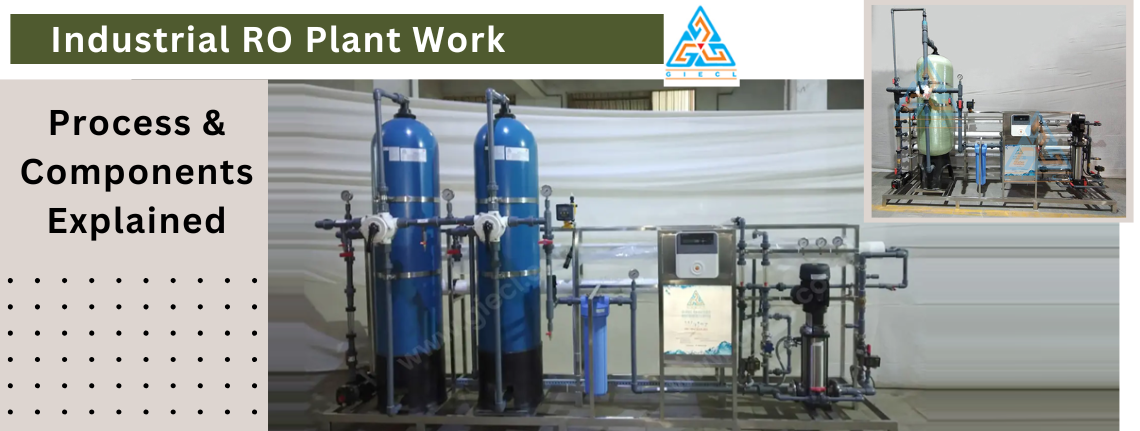 By admin
By admin  01 July 2025
01 July 2025
Water purification is critical in industries that rely on high-quality process water. Industrial RO plants use a membrane-based filtration process to remove dissolved salts, bacteria, and impurities from raw water.
This article explores the working stages, major components, and benefits of reverse osmosis systems, with insights from Gujarat Ion Exchange and Chemicals Limited (GIECL), a leading manufacturer in India.

 By admin
By admin  01 July 2025
01 July 2025
An industrial RO plant is a large-scale water filtration system that uses pressure to force water through a semi-permeable membrane.
This process removes contaminants such as total dissolved solids (TDS), heavy metals, microorganisms, and organic impurities.
These systems are used in sectors like:
The output is clean, purified water suitable for use in sensitive processes, equipment cooling, or product formulation.
RO plants support sustainability by reducing water wastage and ensuring consistent water quality.
Giecl is considered to be leading manufacturer of a wide range of products which includes multiple range such as 250lph industrial reverse osmosis plant, 3000lph industrial reverse osmosis plant, 500lph industrial reverse osmosis plant, industrial reverse osmosis plant, 2000lph industrial water purifier and 250lph industrial water purifier. The below mentioned are few details of Industrial RO plant specification.
| Technology | Reverse Osmosis |
| Membrane Housing | Depends upon no. of Membranes |
| No. of Membrane | As per exact capacity |
| Pre-filtration | Sand Filter, Activated Carbon Filter, Micron Filter-5 & 10 |
| Post-filtration (Optional) | Ultra Filtration, Ultra Violated |
| Functioning | Automatic |
| Input TDS | TDS up to 10000ppm, Hardness 5600mg/I |
| Portable | Easy to transport/can be containerized |
| Brand | GIECL |
| Country of Origin | India |
GIECL is a reputed name in the water treatment industry. With over two decades of experience, they provide reliable, high-performance RO plants for industrial needs. Each system is built for durability, efficiency, and water recovery.
Owned & Powered by : #1 Vinayak InfoSoft - SEO Company Ahmedabad || Disclaimer || Sitemap